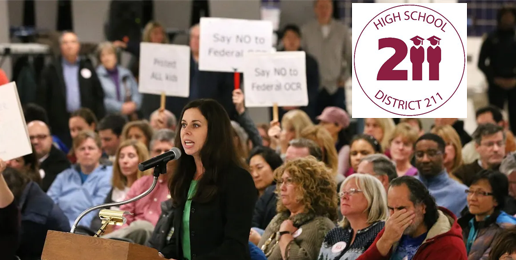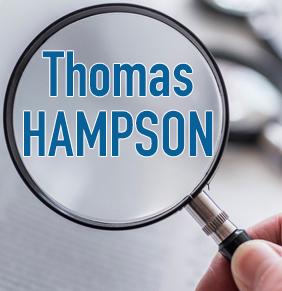
The Illinois District 211 School Board recently allowed a transgender girl, a boy, to join the girls’ volleyball team at Conant High School, once again sparking heated public debate in the northwest suburbs and raising highly contested legal and cultural issues nationwide. The debate over permitting male students who identify as female on girls’ teams is just part of the wider national conflict over gender identity, parental rights, and the influence of an activist minority.
This controversy erupted when the 6’4” transgender student was accepted onto the Conant girls’ volleyball team. The student had never played volleyball before. Reportedly, several girls quit the team, and the long-time coach of the girls’ volleyball team withdrew from coaching the team over the issue. The conflict also led to a contentious school board meeting where parents and community members squared off on opposite sides of the problem.
Illinois is one of 18 states, along with the District of Columbia, that have established legal protections for transgender students. The state’s Human Rights Act bans discrimination based on gender identity in both education and sports. Additionally, the Illinois High School Association’s (IHSA) policies permit transgender athletes to compete in sports on teams that match their gender identity.
State laws permit any student who identifies as trans to participate on the sports team that matches their gender identity instead of their biological sex. Local school districts decide eligibility for regular-season games. However, for the postseason, the student must undergo a formal IHSA review process as outlined below:
1: School Notification
-
- The student or their family must notify the school administrator or athletic director of their intent to participate in athletics consistent with their gender identity.
2: Documentation Submission
-
- The school collects and submits the following to IHSA:
- Medical documentation (e.g., hormone therapy, counseling, surgical history if applicable)
- School registration records
- Affirmation statements from the student, parent/guardian, and optionally, clergy or healthcare providers
- Transcript and other relevant school records
3: IHSA Review
-
- IHSA reviews the documentation and makes a written eligibility ruling.
- If approved, the student may participate in postseason competition consistent with their gender identity.
- The ruling is valid for the duration of the student’s high school career, unless there is a material change in medical or identity documentation.
4: Appeals and Renewals
-
- Students or schools may appeal IHSA’s decision.
- Annual renewal is not required unless circumstances change.
Although state law favors those supporting boys who identify as girls playing on girls’ teams and using girls’ locker rooms, the federal government also has a say. President Trump’s Executive Order 14201, “Keeping Men Out of Women’s Sports,” interprets Title IX as requiring a strict biological definition of sex. The order directs the Department of Education to investigate and possibly defund any educational institution that allows transgender girls to compete in girls’ sports, claiming such policies violate Title IX by denying “equal opportunities” to biological females.
Under the Supremacy Clause of the U.S. Constitution, federal law generally takes precedence over conflicting state law. But is Trump’s executive order actually “federal law” that can override state statutes?
The answer isn’t automatic. Executive orders have the force of law only within the scope of existing laws passed by Congress. Title IX itself—the underlying federal statute—doesn’t explicitly define “sex” as biological sex or gender identity.
Federal courts are split on whether Title IX’s use of “sex” includes gender identity. The Fourth and Seventh Circuits have ruled that excluding transgender students violates Title IX, while the Eleventh Circuit has reached the opposite conclusion. The Supreme Court has already announced its intention to hear two transgender athletics cases in the 2025 term.
This circuit split weakens the Trump administration’s legal foundation. If federal courts can’t agree on Title IX’s meaning, how can an executive order assert a definitive interpretation that overrides state law?
Illinois falls under the jurisdiction of the 7th Circuit, so its decision on transgender students still governs here. However, the earlier rulings by the 7th Circuit have become much more tenuous, despite being one of circuits most sympathetic to the transgender agenda.
In Whitaker v. Kenosha Unified School District (2017) and A.C. v. Metropolitan School District of Martinsville (2023), the court held that excluding transgender students from facilities that match their gender identity violates both Title IX and the Equal Protection Clause of the 14th Amendment. These rulings established binding precedent across Illinois, Indiana, and Wisconsin, affirming that schools must accommodate transgender students.
Recently, in June 2025, the 7th Circuit ruled in D.P. v. Mukwonago Area School District that requiring transgender students to use bathrooms matching their biological sex violates Title IX and the Equal Protection Clause. The court explicitly rejected biological sex policies as discriminatory.
All this changed, though, on June 18, 2025, when the U.S. Supreme Court ruled in United States v. Skrmetti that Tennessee’s ban on gender-affirming medical care for minors does not violate the equal protection rights of transgender children. Immediately after this decision, the 7th Circuit took the extraordinary step of vacating its own ruling in the Mukwonago case and ordered a rehearing to consider whether its rulings in Whitaker and Martinsville were flawed.
The court is currently reexamining whether transgender students have any constitutional rights to access facilities, let alone rights to participate in athletics.
The split among the circuits, SCOTUS’s decision to hear at least two transgender cases next term, and the 7th Circuit’s decision to reconsider its previous rulings all cast the entire issue into uncertainty.
This puts Illinois schools in a difficult position. The state’s Human Rights Act still mandates accommodation of transgender students, but the 7th Circuit—the same court that would hear any federal cases—is now reconsidering whether such accommodations violate federal constitutional law. If the 7th Circuit reverses its decision in Whitiker and Martinsville, as it did in Mukwonago, the court that was once the strongest supporter of the Illinois law could become its biggest legal threat.
District 211’s volleyball decision increasingly faces legal challenges. Even if Illinois law mandates inclusion, a hostile 7th Circuit ruling combined with strong federal enforcement by the current DOJ Office of Civil Rights could leave the district defending an untenable legal position.
The Trump administration’s executive order becomes significantly more legally influential within the 7th Circuit’s jurisdiction if the court abandons its precedent of ruling in favor of gender identity over biological sex. Courts give substantial deference to executive interpretations of federal statutes when circuit precedent is unsettled or recently overturned.
One way or another—whether through a 7th Circuit reversal or a U.S. Supreme Court confirmation that the definition of “sex” in Title IX refers to biological sex—it now appears that the Illinois laws allowing boys who identify as girls to participate on girls’ teams and use girls’ locker rooms and restrooms, and vice versa, will be overturned by June 2026. Meanwhile, the entire issue remains unresolved. This requires our prayers and vigilance.
“Watch, stand fast in the faith, be brave, be strong.”
~1 Corinthians 16:13~






















